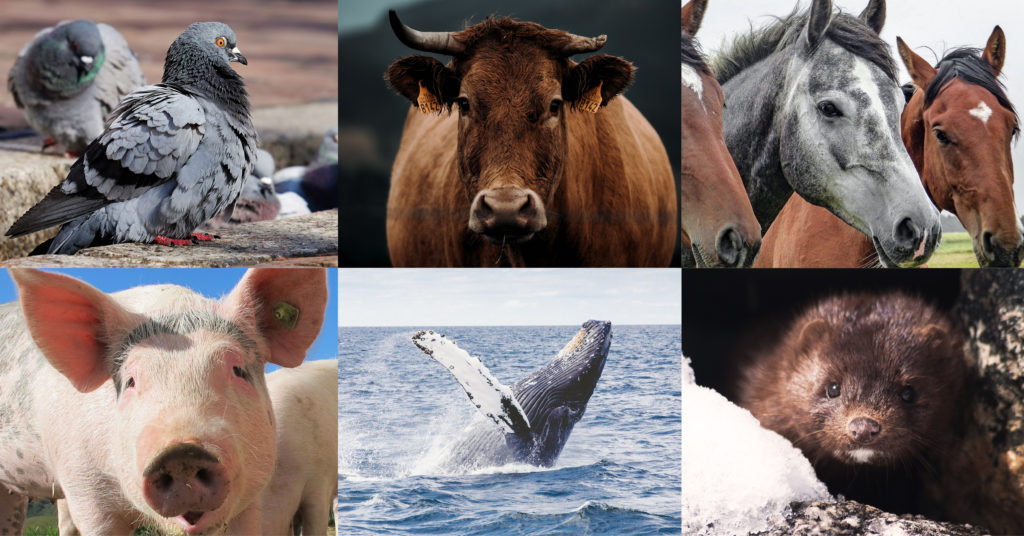December 3, 2020
COVID and Animals: What YOU Need to Know: Part Two.
Two weeks ago, I shared Dr. Scott Weese’s insights into the research on COVID-19 in dogs and cats. Now I would like to share what you need to know about the virus in other species.
Pigs

SARS-CoV-2 (the virus that causes COVID-19 infection) binds to the surface of cells by way of the ACE2 receptor, which pigs also have and the receptor is similar to humans’ ACE2 receptors. However, various research findings indicate that pigs are either not susceptible to COVID-19 infection or only minimally.
Bottom line: The risks for pigs are low, but not zero.
Cattle
Considering the prevalence of cattle as food animals, it is fortunate that cattle appear to be minimally susceptible to SARS-CoV-2. In fact, one study found that cattle inoculated with the virus displayed some signs of infection, however when placed amongst healthy cattle, there was no evidence that the virus had spread to the other cattle.
Bottom Line: Cattle are minimally susceptible at most.
Horses
There is very little research examining the relationship between COVID-19 and horses. Studies indicate that potential for infection in horses is possible, however much more research is needed to establish a clear link of infection between horses and humans.
Bottom line: We don’t know yet.
Birds
Some viruses may infect both mammals and birds, however oftentimes they do not affect both. Fortunately, birds do not seem to be susceptible at all to SARS-CoV-2. This prediction has been corroborated by studies examining chickens, ducks, as well as turkeys, quail, and geese.
Bottom Line: Birds are not susceptible.
Mink
Mink are very susceptible to the SARS-CoV-2 virus. This became extremely problematic as mink farms are very common in Europe and led to widespread infection as a result of human-to-mink infections; which subsequently enabled extensive infection between mink. To curb the infections, millions of mink on these farms have been culled. At present, Canada has approximately 70 mink farms, which contain a fraction of the 17 million mink in Denmark. No cases have been found in Canadian mink to date.
Bottom line: Mink are very susceptible and this has been devastating to mink in Europe, though not (yet) in Canada.
Marine Mammals
There is limited research examining the relationship between COVID-19 and marine mammals. Sewage is often the most common route of passing pathogens to marine life; and, the virus is known to survive for a short period of time in sewage. By examining species’ receptors, two studies identified various whales and porpoises as potentially highly susceptible to infection. One study ranked various marine mammals’ susceptibility to infection and alarmingly found that some of the most endangered marine species are potentially more susceptible to infection than humans.
Bottom line: The risk of transmission to humans is negligible. Humans might transmit the virus to marine mammals, and some of the most endangered species may be the most at risk for infection.
Dr. Scott Weese is the former Canada Research Chair in Zoonotic Diseases at the University of Guelph and a veterinary internal-medicine specialist and chief of infection control at the Ontario Veterinary College. He writes an outstanding blog, called Worms and Germs that I follow regularly. He is a great friend of the Ottawa Humane Society and has always made himself available for any information we need.
